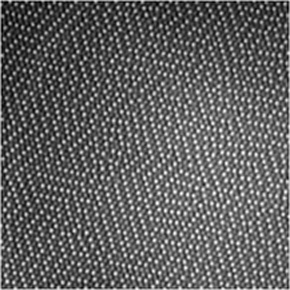 [source] Disorder in glassy systems usually originates from geometric frustration, which arises when competing interactions may not be satisfied simultaneously. In dense arrangements of spheres, each quadruplet of particles can close-pack to form a tetrahedron. However, it is geometrically impossible to fill space with tetrahedra. For this reason particulate systems often fall into metastable disordered states (which minimize energy only locally) and fail to find the crystalline ground state (which minimizes the energy globally but not locally).
[source] Disorder in glassy systems usually originates from geometric frustration, which arises when competing interactions may not be satisfied simultaneously. In dense arrangements of spheres, each quadruplet of particles can close-pack to form a tetrahedron. However, it is geometrically impossible to fill space with tetrahedra. For this reason particulate systems often fall into metastable disordered states (which minimize energy only locally) and fail to find the crystalline ground state (which minimizes the energy globally but not locally).
Similar frustration is known to occur in magnetic systems in which antiferromagnetic interactions tend to orient the magnetic moments of neighboring particles in opposite directions. If the lattice these particles reside on contains loops with an odd number of sites, such as the two-dimensional triangular lattice, all pairs of nearest neighbor spins cannot be simultaneously antiparallel.
We have recently identified a colloidal system that connects these two seemingly different types of frustration. For a buckled monolayer of spheres, packing considerations induce frustration which is similar to that appearing in the triangular-lattice Ising model. Interestingly, small out-of-plane displacements of the spheres translate into in-plane lattice deformations. We found that when lattice deformability is added to the Ising model, we could reproduce the experimental results concerning the glassy relaxation dynamics and the partial spatial ordering in the form of zigzagging stripes. In this lattice system disorder emerges naturally from the inherent frustration of the interactions, and the underlying lattice enables many results to be obtained for it theoretically, therefore many insights may be learned from it on the mechanisms governing disordered glassy systems.
Geometric frustration in buckled colloidal monolayers
Y. Han, Y. Shokef, A.M. Alsayed, P. Yunker, T.C. Lubensky, and A.G. Yodh
Nature 456, 898 (2008)
Stripes, zigzags, and slow dynamics in buckled hard spheres
Y. Shokef and T.C. Lubensky
Physical Review Letters 102, 048303 (2009)
Randomness-induced redistribution of vibrational frequencies in amorphous solids
V. Ilyin, I. Procaccia, I. Regev, and Y. Shokef
Physical Review B 80, 174201 (2009)
Order-by-disorder in the antiferromagnetic Ising model on an elastic triangular lattice
Y. Shokef, A. Souslov, and T.C. Lubensky
Proceedings of the National Academy of Sciences of the USA 108, 11804 (2011)
Buckled colloidal monolayers connect geometric frustration in soft and hard matter
Y. Shokef, Y. Han, A. Souslov, A.G. Yodh, and T.C. Lubensky
Soft Matter 9, 6565 (2013)
Attraction controls the inversion of order by disorder in buckled colloidal monolayers
F. Leoni and Y. Shokef
Physical Review Letters 118, 218002 (2017)
